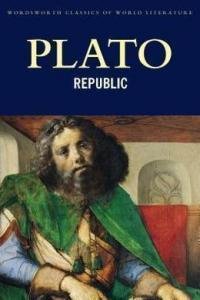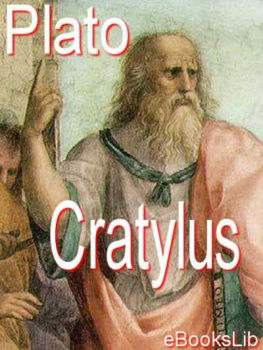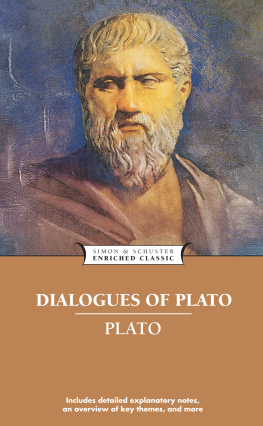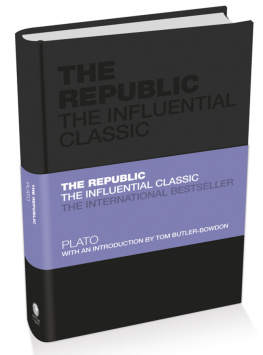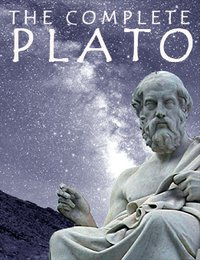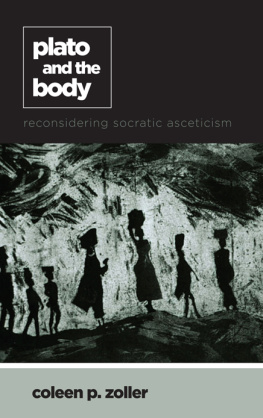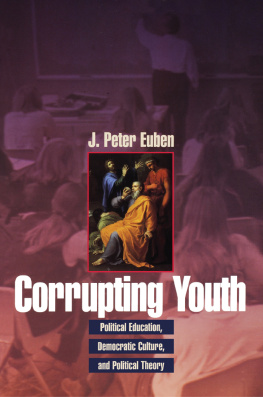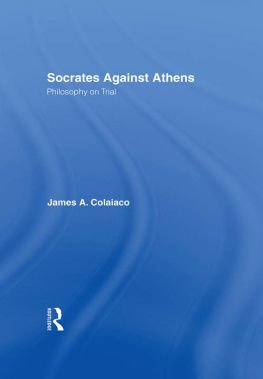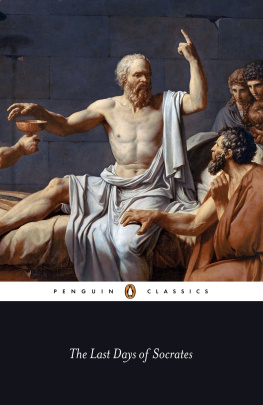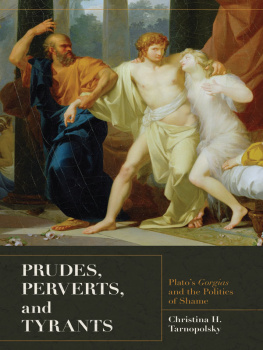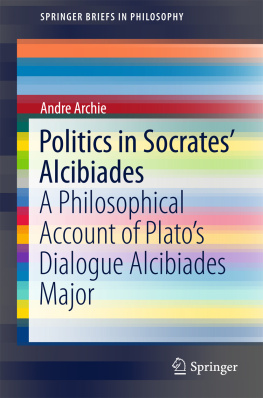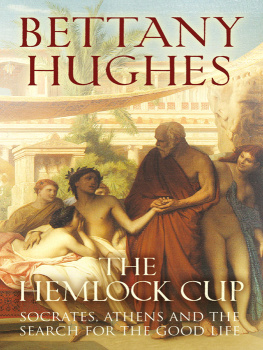
GORGIAS
PLATO(c. 427347 BC) stands with Socrates and Aristotle as one of the shapers of the whole intellectual tradition of the West. He came from a family that had long played a prominent part in Athenian politics, and it would have been natural for him to follow the same course. He declined to do so, however, disillusioned by the violence and corruption of Athenian political life, and especially by the execution in 399 of his friend and teacher, Socrates. Inspired by Socrates enquiries into the nature of ethical standards, Plato sought a cure for the ills of society, not in politics but in philosophy, and arrived at his fundamental and lasting conviction that those ills would never cease until philosophers became rulers or rulers philosophers. At an uncertain date in the early fourth century BC he founded in Athens the Academy, the first permanent institution devoted to philosophical research and teaching, and the prototype of all Western universities. On several occasions he travelled to Sicily in an attempt to put his political theories into practice, notably as an adviser to Dionysius II, ruler of Syracuse.
Plato wrote over twenty philosophical dialogues, and there are also extant under his name thirteen letters, whose genuineness is keenly disputed. His literary activity extended over half a century; few other writers have exploited so effectively the grace and precision, the flexibility and power, of Greek prose.
WALTER HAMILTON was master of Magdalene College, Cambridge, from 1967 to 1978, and then was made an Honorary Fellow. Born in 1908, he was a Scholar of Trinity College Cambridge, where he gained first class honours in both parts of the Classical Tripos. He was a Fellow of Trinity College and a University Lecturer at Cambridge, and taught at Eton before becoming Headmaster of Westminster School (195057) and of Rugby School (195766). He translated Ammianus Marcellinus The Later Roman Empire and Platos Symposium and his Phaedrus and Letters VII and VIII all for Penguin Classics. Walter Hamilton died in 1988.
CHRIS EMLYN-JONES studied at Birmingham University, where he received his PhD in 1972. Since 1979, he has taught in the department of Classical Studies at the Open University. His publications include The Ionians and Hellenism (1980), Homer: Readings and Images (co - editor) (1992), commentaries on the Greek texts of a number of Platos early dialogues, and various articles on Plato, the Presocratics and Homer. His hobby is music-making, instrumental and vocal.
PLATO
Gorgias
REVISED EDITION
Translated by
WALTER HAMILTON and CHRIS EMLYN-JONES
Introduction, Commentary and Notes by
CHRIS EMLYN-JONES
PENGUIN BOOKS
PENGUIN BOOKS
Published by the Penguin Group
Penguin Books Ltd, 80 Strand, London WC2R 0RL, England
Penguin Putnam Inc., 375 Hudson Street, New York, New York 10014, USA
Penguin Books Australia Ltd, 250 Camberwell Road, Camberwell, Victoria 3124, Australia
Penguin Books Canada Ltd, 10 Alcorn Avenue, Toronto, Ontario, Canada M4V 3B2
Penguin Books India (P) Ltd, 11 Community Centre, Panchsheel Park, New Delhi 110 017, India
Penguin Books (NZ) Ltd, Cnr Rosedale and Airborne Roads, Albany, Auckland, New Zealand
Penguin Books (South Africa) (Pty) Ltd, 24 Sturdee Avenue, Rosebank 2196, South Africa
Penguin Books Ltd, Registered Offices: 80 Strand, London WCZR 0RL, England
www.penguin.com
First published 1960
Revised edition 2004
Copyright Walter Hamilton, 1960
Copyright Chris Emlyn-Jones, 2004
All rights reserved
The moral rights of the translators have been asserted
Except in the United States of America, this book is sold subject
to the condition that it shall not, by way of trade or otherwise, be lent,
re-sold, hired out, or otherwise circulated without the publishers
prior consent in any form of binding or cover other than that in
which it is published and without a similar condition including this
condition being imposed on the subsequent purchaser
Contents
Acknowledgements
I would like to thank Rosemary Wright for helpful comment on an early draft of the Introduction, Translation and Commentary; I am also grateful to Louise Mansfield and Lynda White for technical assistance in the preparation of the manuscript.
Chris Emlyn-Jones
January 2003
Reference System Used in this Edition
Bibliographical references
References to modern scholarly works in the Introduction and Commentary are to author and date of publication and, where appropriate, page numbers, e.g. Dodds 1959, p. 250. This relates to the Further Reading, where full details of the publication can be found.
References to the translation and commentary
The running section numbers and sub-section letters in the margin of the translation (e.g. 467b c etc.) approximate to the pages and smaller divisions of the Greek text of the sixteenth-century AD edition of Stephanus, which is standard in all modern editions (and most translations) of Plato; quite apart from allowing precision of reference, this system will aid the reader wishing to use this translation alongside a Greek text.
The sectional divisions of Gorgias, (A[1], B[3], etc.) are purely editorial and are placed at what I judge to be suitable breaks in the dialogue, although there is rarely an obvious dramatic break, since Platos usual method of composition was to disguise, rather than signal, changes of subject.
The letters A, B and C correspond to the main tripartite structure of the dialogue, the successive conversations with Gorgias, Polus and Callicles. The smaller divisions [1], [2.] etc. represent coherent sections suitable for editorial explanation and comment. The method adopted is to preface a section with an introductory explanation, leaving until the end of the section, where appropriate, discussion on points of interest and/or difficulty. Notes are restricted to the elucidation of more specific detail.
Chronology
Many of the events and the chronology of Platos life as well as the dates and order of the composition of his dialogues cannot be established with any certainty and are still a matter of lively debate; the following represents a general, but not universal, consensus. Works of disputed authorship have not been included. All dates are BC.
c. Birth of Plato from an old and wealthy Athenian family.
Defeat of Athens in the war with Sparta (the Peloponnesian War).
The rule of a right-wing junta in Athens (the Thirty Tyrants), involving his relatives, followed by the restoration of democracy.
The trial, condemnation and execution of Socrates on a charge of not acknowledging the gods which the city acknowledges, but introducing new divinities and corrupting the youth.
390s-early 80s Following the death of Socrates, Plato and other followers of Socrates withdraw from Athens to the nearby city of Megara. Plato travels extensively.
Composition of the short Early period dialogues: Apology, Crito, Charmides, Euthyphro, Hippias Minor, Ion, Laches, Lysis.
389/8 Visits Italy and Sicily, probably in order to make contact with Pythagorean philosophers.
c. Founds the Academy on the site of the shrine of the hero Academus in the north-west district of Athens.
380s The later Early period dialogues: Gorgias, Menexenus, Protagoras.
late 380s
Next page

